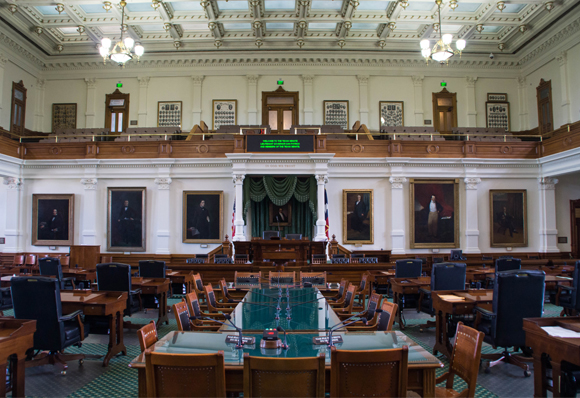The conflict in Congress between the Democratic Party and the Republican Party is increasing, but this is not the direct cause of the lack of progress on TPP deliberations. There are internal conflicts in both the Democratic and Republican parties concerning TPP. In the Democratic Party, although the Obama administration is promoting TPP, the number of Democrats in Congress who agree is limited. The majority of Democratic lawmakers tend to oppose TPP, in accordance with the views of the labor unions that have supported them. The Republican Party mainstream supports TPP, but conservative hardliners and anti-mainstream factions oppose it. The reasons differ among the opposing factions. The former faction wants to interfere with President Obama’s legacy, and the latter contains many working-class people, who fear that TPP will take away jobs. Nevertheless, from the two parties combined, there was a majority of lawmakers supporting TPP, and President Obama had the approval from Congress to conduct trade negotiations, leading to the signing of the TPP.
The situation surrounding the TPP changed as a result of the run-away success of the real estate mogul Donald Trump in his bid to become the Republican presidential nominee. From the time he announced his intention to run, and throughout his campaign, Mr. Trump has voiced opposition to TPP. This is an unusual stance for a Republican presidential candidate; although it is a stance that appeals to the working class, which is the base of his support, and he indicated that he may soften this position if it is necessary to gain the support of the mainstream faction. During the Republican primaries, however, the mainstream faction suffered unexpected reversals, and all the mainstream candidates supporting TPP withdrew, leaving Mr. Trump to claim the nomination at the Republican convention as a representative of the anti-establishment faction. Opposition to TPP became even more intense, including demands to withdraw, and the party leadership as well as the mainstream faction has moved toward Mr. Trump’s position. Heading into the presidential election, even the Republican Party statement on trade policy is tending toward a protectionist stance, as is clearly apparent in Mr. Trump’s “America First” attitude, and opposition to the ratification of TPP this year is part of this.
The mainstream faction of the Democratic Party also faced a similar turn-around. Senator Bernie Sanders, the self-styled “democratic socialist," put up a good fight for the presidential nomination, and the TPP opposition he voiced gained support within the party. Even the former Secretary of State, Hillary Clinton, who was named the presidential candidate of the Democratic Party, struggled in the primaries and had no choice but to oppose the TPP that she promoted during her time as Secretary of State. The Democratic Party policy statement does not include complete opposition in consideration of President Obama, yet states a cautious stance toward TPP. Thus, the number of TPP advocates in the Democratic and Republican parties has decreased, and it is harder for them to speak out; so approval of TPP this year clearly has become more difficult.

























































